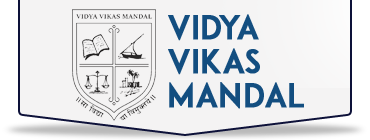The Post Graduate Department of Commerce organized ‘Buddy Training in Research Methodology’ for the M.Com Part II students from 12th July to 12th October 2023. During this program, each M.Com faculty member, acting as a dissertation guide, formed teams of students and encouraged them to provide training to their peers on various aspects of research methodology. The training for fellow students was conducted under the guidance of Assistant Professors Twinkle Fernandes, Valencia Baptista, and Edrea Picardo. The primary goal of this initiative was to equip students with the skills and resources needed for success in academic research and writing.
The details of the sessions conducted:
Research Essentials: Shine De Souza covered fundamental research concepts, hypothesis formulation, literature review, research gap identification, and various statistical tools relevant to research objectives.
Pre-data Analysis: This session, led by Pandurang Salgaonkar, Daisy Fernandes, Muriel Carvalho, Sany Velip, and Cavel Dias, focused on various websites for secondary data analysis. It also included explanations of content analysis, data collection using Excel, data retrieval from websites, and video presentations on the use of IndiaStat and N-list for data collection.
Sources of Literature: In this training session, Sanjot Bhandari, Shruti Pai Khot, and Suvedha Prabhu introduced students to websites and software for finding research papers and literature reviews. They also provided information about free software and software requiring registration or subscription.
Sources of Research Papers: Saiesh Satardekar, Ruksar Shaikh, Sachin Chaudhary, and Resha Hodawadekar discussed sources like Open Access Journals, Google Scholar, Social Media, and Academic Networks such as Research Gate, Academia.edu, and Academic Databases such as Scopus.
Content Analysis: Gautami Kamat, Grisela Pinto, Ashvida Barreto, and Bharti Naik explained the concept of content analysis and demonstrated the steps involved with examples.
Sources of Secondary Data: Adnan Neknal and Gauravi Kasar discussed the types of questions and reliable sources for secondary data collection. They explained the search for secondary data from sources like census data, government departments, journals, and online resources such as ResearchGate and Sci-Hub.
Sources for Secondary Data Collection: Shantani Prabhu, Shabana Sayed, Sakshi Tari, and Shaheen Sayed introduced various websites for secondary data, including the GST portal, NSE India, Ministry of Corporate Affairs, Reserve Bank of India, and SEBI.
Data Analysis: This session, led by Riayan Mohammed, Frazer Menezes, Roshni Khatun, Shanawaz Ahmad, and Shailesh Velip, covered various software tools such as Microsoft Excel, SPSS, R, Python, Tableau, QDA Miner, NVivo, Epi Info, and GNU PSPP. It also included concepts of data cleaning, formatting, and descriptive statistics.
Tools and Techniques of Data Analysis: Petalia Coutinho and Shruti Kudchadkar explained the objectives of sample research and the techniques used for each objective in primary and secondary data studies. They introduced students to relevant tools and provided information on whether these tools are free or require payment.
Secondary Tools and Techniques: Zohaid Shaikh, Valerie Viegas, Vaishnavi Naik Gaonkar, and Vallabh Natekar explained tools and techniques such as T-Test, GREtl, MATLAB, Eviews, SPSS, inferential statistics, descriptive statistics, SEM, Delphi method, VAR, and Granger Causality Test.
Mendeley Software: Cheryl Dias and Sasha Naik explained Mendeley software, its purpose, and how it works, along with extensions such as web plugins for more efficient usage.
Post Data Analysis: Lesha Gaonkar, Dhiraj Goyal, Ibrahim Mohammed, Priyanka Mitra, and Ayan Mohammed conducted a practical session on plagiarism detection software applications like ‘Plagiarism Checker X,’ Grammarly, Papers Owl, and Quetext. They also explored paraphrasing tools such as QuillBot and Prepostseo and emphasized proper citation and reference management using reference and bibliography compilation tools like Zotero and Mendeley for efficient organization and citation of sources.
Sources for Publishing Papers: Uma Pandit, Switi Gawas, Sohan Dessai, and Sharmila Prabhu discussed the use of websites like Research Gate, Google Scholar, Scopus, Microsoft Academic, and Semantic Scholar for publishing research papers.
This training session served to familiarize students with various aspects of research methodology that they will encounter during their dissertations. Students learned to use specific software tools and shared their knowledge and skills with their peers, enhancing the quality of their future research work. 13 students under the guidance of Asst. Prof. Twinkle Fernandes, 16 students each under the guidance of Asst. Prof. Valencia Baptista and Edrea Picardo participated in the activity.
